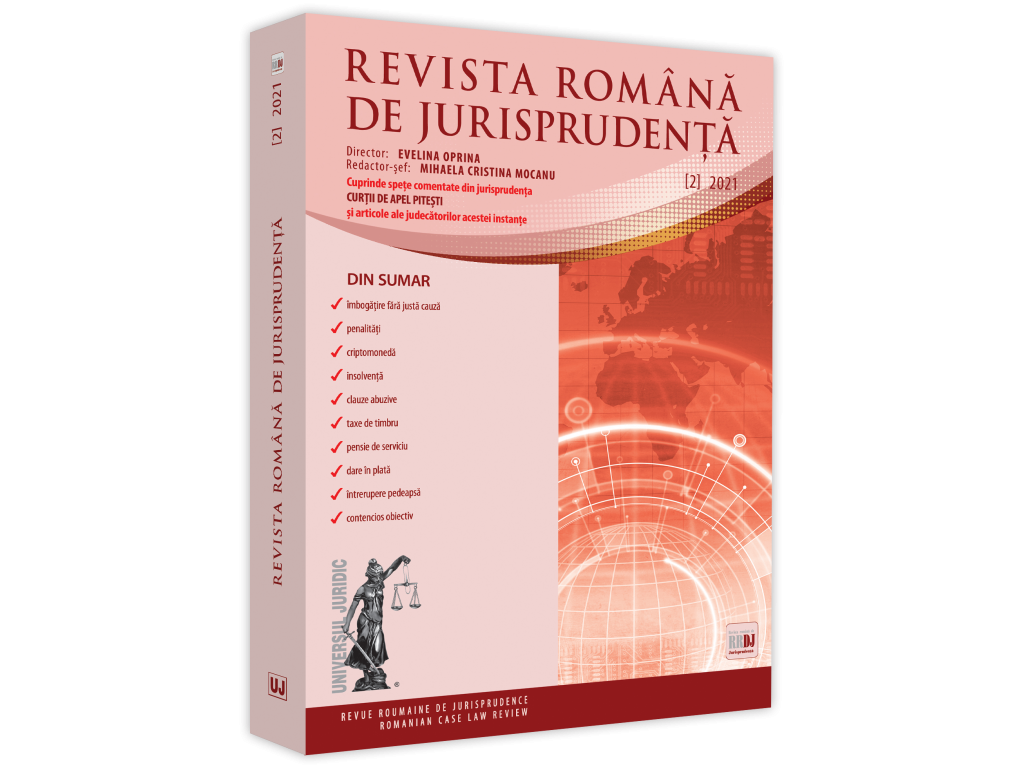Division of joint properties. Retaining a higher contribution during marriage to the acquisition of community property must have a legal power. Benchmarks in setting quotas
DREPT CIVIL ŞI PROCESUAL CIVIL
Abstract
The Civil Code establishes a relative legal presumption of equal contribution of the spouses to the acquisition of property during the marriage, and the retention of a lower share of the plaintiff spouse's contribution can only be made on the basis of a counterclaim, lawfully made by the defendant spouse, and not on the basis of the statement of defence, which is the procedural document by which the defendant defends himself/herself, in fact and in law, against the statement of claim. As long as the court annulled the counterclaim by interlocutory judgment, it can no longer retain by judgment a 70% contribution to the acquisition of property during the marriage in favour of the defendant.
The Court found that the appellant-claimant had requested in the statement of claim that the parties be found to have an equal share in the acquisition of the two marital assets, and in view of the limits of the power, following the annulment of the counterclaim, the first court should have ruled only within the limits of that power and should have not considered the request in the counterclaim concerning the defendant's majority share in the acquisition of the marital assets.
In determining the share of the plaintiff's contribution to the acquisition of property during the marriage, account is also taken of the wife's household activities during the marriage, which lasted 16 years, and the defendant acknowledges this participation by the plaintiff in his statement of defence.








